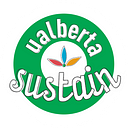The Climate Change Comedian
“It’s nice that other people who are panicking about the climate crisis quietly by themselves can share in that, and it’s nice that all of my friends who are in the climate justice movement can get a good laugh.”
By Jenna Bell
In August 2019, Edmonton city council officially declared a state of climate emergency. What were they thinking? Well, if they’re anything like me, they were probably imagining… the earth imploding in a frenzy of natural disasters as the rising ocean consumes our land, the sun scorches our crops, life ceases to exist as we know it… Honestly, I’m a little overwhelmed!
There‘s a phrase for these feelings: “climate anxiety.” Personally, I’ve been coping with my climate anxiety by binging environmental documentaries, filling my house with more plants than any reasonable person should own, and (maybe) planning a move to Mars.
Mav Adecer is dealing with his climate anxiety in a totally different way: through stand-up comedy!
A former University of Alberta student, Mav first tried stand-up on his neighbours in International House (he bombed). Five years later, he is a flourishing comedian and a talented cartoonist. His show, Last Days on Krypton, debuted at the Edmonton International Fringe Festival in August. It’s a unique act about climate anxiety that Mav wrote to bring a sense of community and humour to this rather dark subject.
When did you first realize that you were funny?
The thing about stand up is that when you try it out for the first time, you’re so sure of yourself because you think you’re the funniest person — but you don’t know anything about performance. Your cachet with your friend group has been building for however long you’ve been friends. But on stage, you have to create that instantly in order to get away with the jokes. So the first time I tried stand up… it was super embarrassing.
Then, in 2014, I was living in China and I found a comedy club that was run by a Canadian dude. He was like “hey, come up for five minutes and I’ll give you a beer.” Free beer and people have to listen to me for five minutes? This is perfect. And that’s where I started pursuing comedy in earnest.
Why did you decide to write a comedy act about climate change?
I was talking to my wife, and I was having a little cry about Superman. Superman was the dumbest thing because why would anybody just let their planet explode? Am I really supposed to believe in an advanced civilization whose planet is about to explode and is just going to ignore the warnings of a scientist? But now, I’m in that story.
So I was sharing that with a friend of mine who is involved with climate justice activism, and he laughed his ass off. So of course I thought, “oh, is this a joke?”. Then I just started writing, because it’s really the only two things I know — kids’ cartoons and my climate anxiety. It’s all just coming from a personal place, and then it became the core of the show.
Behind the jokes, your show is super scathing. What are you really trying to get across?
Last Days on Krypton is me exploring neoliberalism through the lens of kids’ cartoons. I don’t see the climate crisis as an environmental crisis. You know? It’s an economic crisis. The problem is that it is profitable to set the earth on fire. So that’s why this show is very openly anti-capitalist. Because for me that’s what the climate crisis is really about. That’s what really needs to be tackled.
What kind of impact do you think Last Days on Krypton has on your audience?
For me, comedy is great because it connects other people. It tells them, “hey, you’re not alone in this thing. You know all those messed up things that you think about? I’m thinking about them too! So you’re not alone.” To me, that is what comedy does at its best: it makes people less lonely.
But as far as any kind of tangible impact, that’s not its job. Like the real work happens offstage. So I don’t think I’m changing any hearts and minds. I don’t think some climate change deniers would listen to my jokes and be like, “oh, I’ve seen the light” or whatever.
What kind of support have you had throughout this journey?
I have to just really shout out [my funders] APIRG. The really great thing about getting a grant is that I didn’t have to soften any of the political stuff. I mean, you went to the show — it’s prickly as hell! And like, I never had to worry about ticket sales. Because it was really just about being as honest about the work and the message as possible. Not having to worry about that has been such a blessing.
I don’t know that I made a career out of this. I still have to draw logos for people. But, like I said, the point of art for me is connection, right? And to build these connections with large swathes of people feels really good. It fills me with gratitude. Now that there have been enough people who’ve seen the show and believe in it, I’m taking meetings about future projects, about maybe even touring the show. I’m just kind of figuring out the best way to do that.
This interview has been edited for clarity and length.
